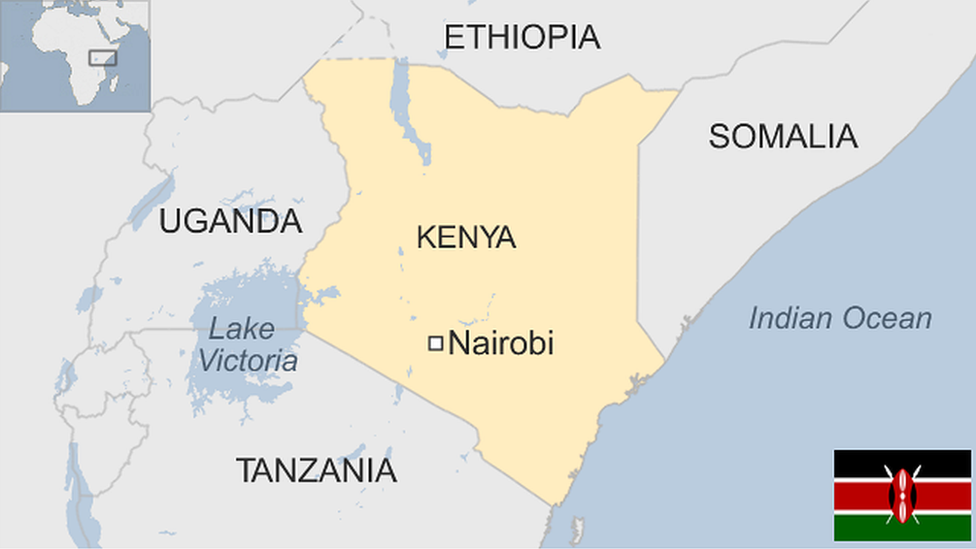What next for Kenya after cancelled presidential election?
- Published
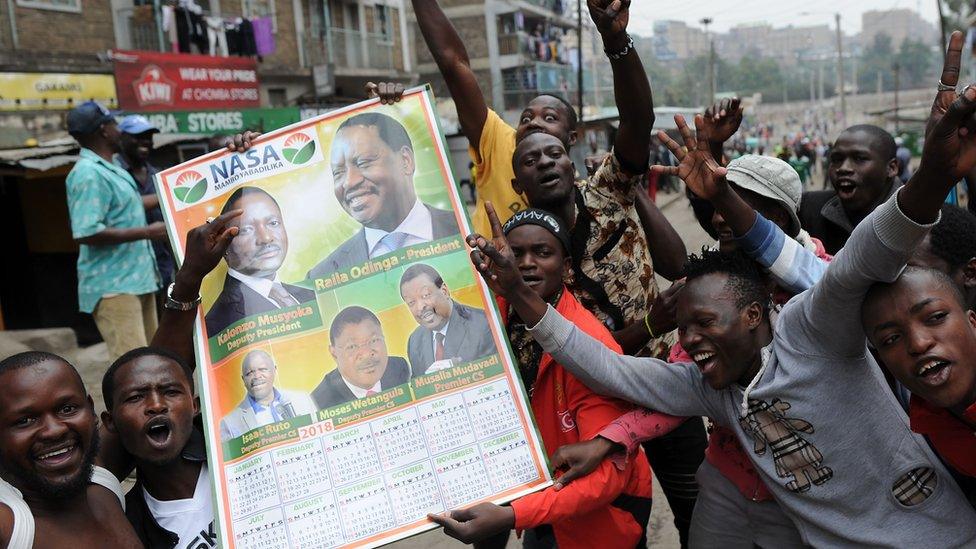
The Supreme Court's decision sparked celebrations by supporters of opposition candidate Raila Odinga
The decision by the Supreme Court of Kenya to annul the results of the presidential election and demand a new poll within 60 days is both good and bad for the country.
It shows the independence of the judiciary, and its willingness to take controversial and unprecedented action despite a perilously short time-frame.
But it also leaves Kenya in the same nervous limbo it suffered in the days following the election, when people anxiously waited for the results and what the losers' reaction to defeat would be.
The country was paralysed because it has been down the road of contested elections before, and 10 years ago it ended in bloodshed.
Opposition presidential candidate Raila Odinga addressed crowds of supporters in his Nairobi heartland of Mathare two days after the results placed him 1.4m votes behind.
He seemed determined to keep fighting with whatever means necessary in his fourth, and what many believe will be his last, bid for the presidency.
It was the language of street protest.
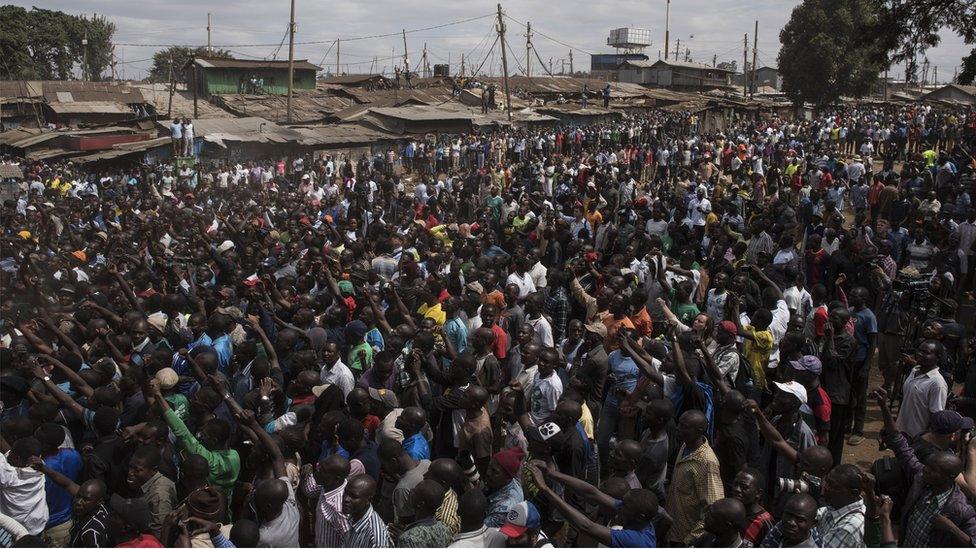
Crowds of supporters listen to Raila Odinga in his Nairobi heartland of Mathare two days after the results
And so, there was a collective sigh of relief when the mass stay-at-home he called for was barely observed.
By then making a U-turn and taking the legal route - as he did unsuccessfully in 2013 - it reassured people that violence would be limited.
Most suspected some form of interference, intimidation and cheating in the election, but felt President Uhuru Kenyatta's wide margin of victory would be enough for the court to uphold the result. But now it's back to square one.
The opposition complained before, during and after the election that the vote was rigged.
But allegations that the computer system was hacked didn't stand up to scrutiny.
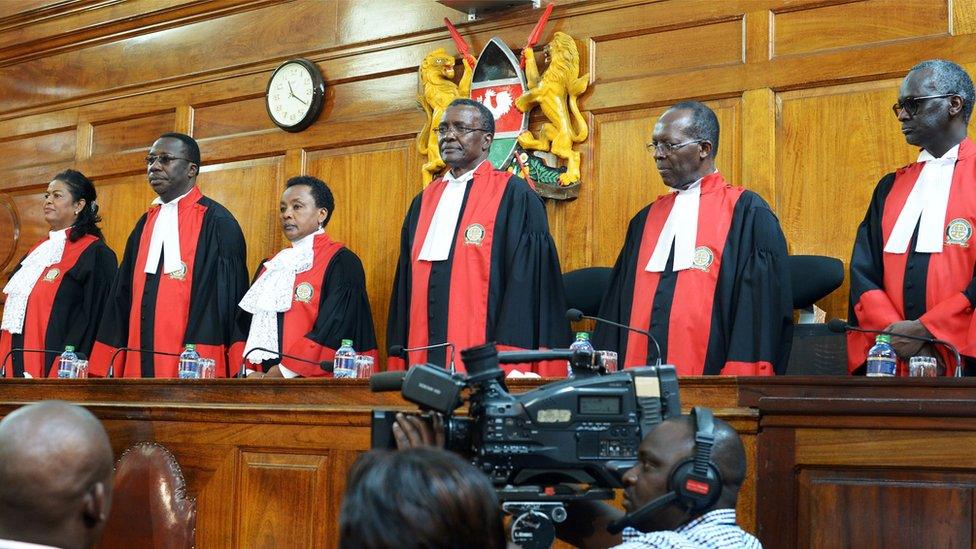
Four judges overruled two others, believing there was enough uncertainty to undermine the election result
Claims that an algorithm fixed the poll, and the release of their own "real" results from an alleged source within the election commission before the official declaration came across as desperate measures.
But the National Super Alliance (Nasa) decision to focus its court challenge on malpractice and irregularities in the process - rather than the hard-to-prove claims of rigging - paid off.
More will be known about the reasoning behind the historic ruling - to declare the presidential poll null and void - when the full judgement is released within three weeks.
But it's the way the results were transmitted, rather than the actual voting process, which was riddled with irregularities.
There was a legal requirement to send copies of the signed returns from every one of more than 40,000 polling stations to the central results centre.
These 34A forms would quickly prove the accuracy of the initial results, electronically delivered from across the country.
It was on this basis that the international observer missions declared their support for the process.
But when the election results were announced, there were claims as many as 11,000 forms were missing - and this appears to have been the focus of the court's deliberations.
Verifying such huge volumes of data - and paper - in the tight time-frame allowed for the court to make a ruling was always going to be difficult.
The four judges who overruled the two dissenting opinions believed there was enough uncertainty to undermine the entire process.
So what happens next?
The Independent Electoral and Boundaries Commission (IEBC) seems determined to run the new poll within two months, despite being held responsible for the failings in the initial vote.
Nasa lawyers could ask for criminal charges to be laid against the IEBC chair and chief executive, which would put the entire process in jeopardy.
The process of selecting new commissioners could take months and would leave Kenya in a constitutional crisis.
Who then would have the capacity to run the election, and would it be legitimate?
President Kenyatta said he respects the court's decision, but personally disagrees with it. However, he has called for peace and the respect for the rule of law.
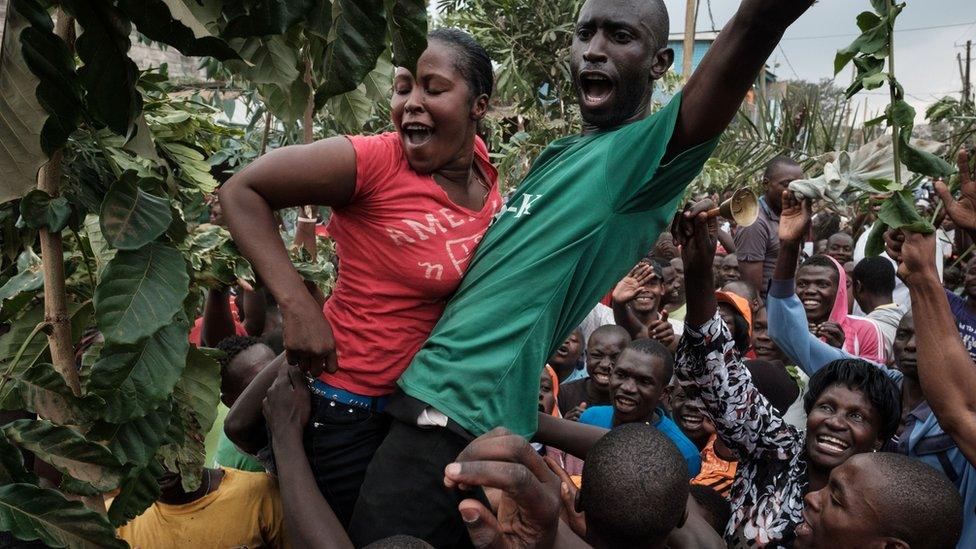
The opposition are celebrating, but more uncertainty beckons
The opposition is jubilant - and so for the time-being both sides will wait for the process to unfold.
It's uncertain ground because it's never happened before.
The plunging stock market and weakening currency shows that Kenya - and those invested in it - are uncomfortable with the uncertainty.
And it is uncertainty that will continue until the nation goes through the whole process again - and this time the electioneering could get a lot nastier.
- Published2 September 2017
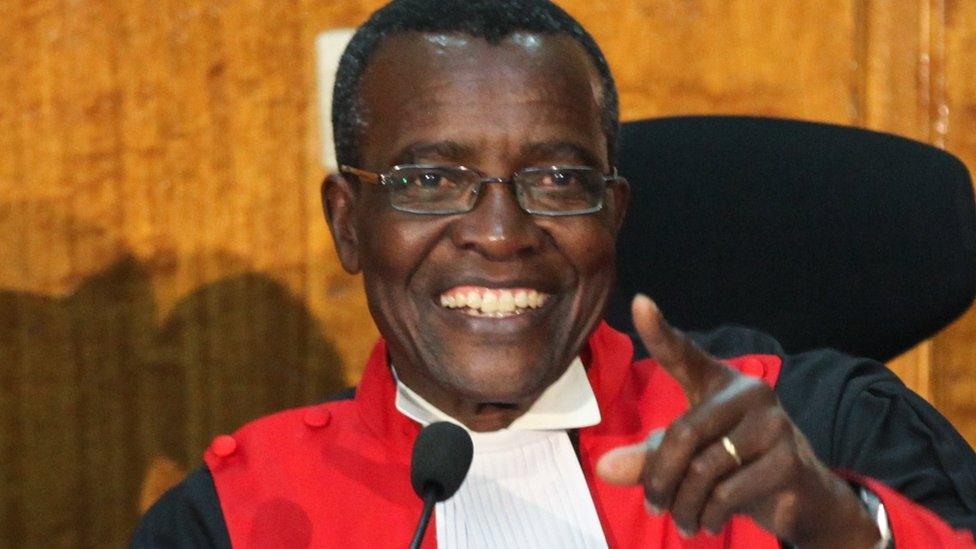
- Published1 September 2017
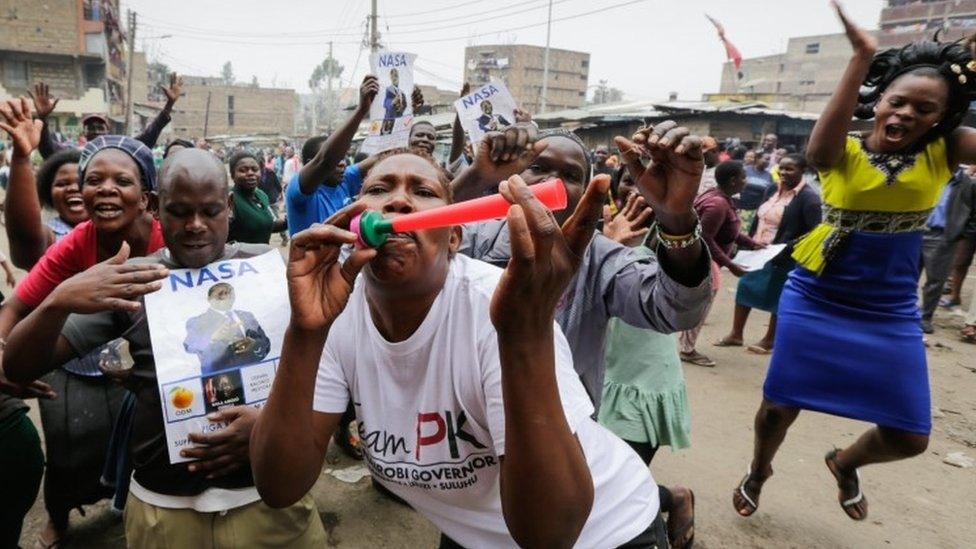
- Published4 July 2023
